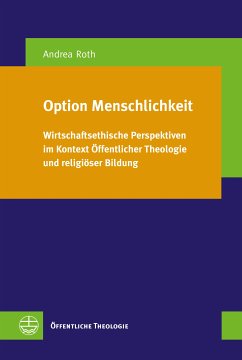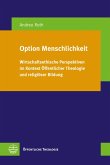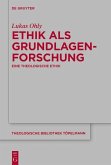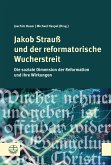[Philanthropy as an Option. Business Ethical Perspectives in the Context of Public Theology and Religious Education]
Evangelical theology can indeed provide incentives for economic action. Andrea Roth illustrates this impressively using the example of questionable training conditions in the hotel and catering industries. She opens up economic-ethical perspectives demonstrating that it is possible for philanthropy to be made compatible with economic rationality.
The framework for this conviction is provided by a 'public theology' approach which is concerned with importing Christian perspectives into current global reality in such a way as to contribute to the promotion of common welfare. On the basis of the cited example, this leads to a proposal in favour of educational processes which enable people to analyse and judge economic problems from theological-ethical perspectives.
Dieser Download kann aus rechtlichen Gründen nur mit Rechnungsadresse in A, B, BG, CY, CZ, D, DK, EW, E, FIN, F, GR, H, IRL, I, LT, L, LR, M, NL, PL, P, R, S, SLO, SK ausgeliefert werden.









